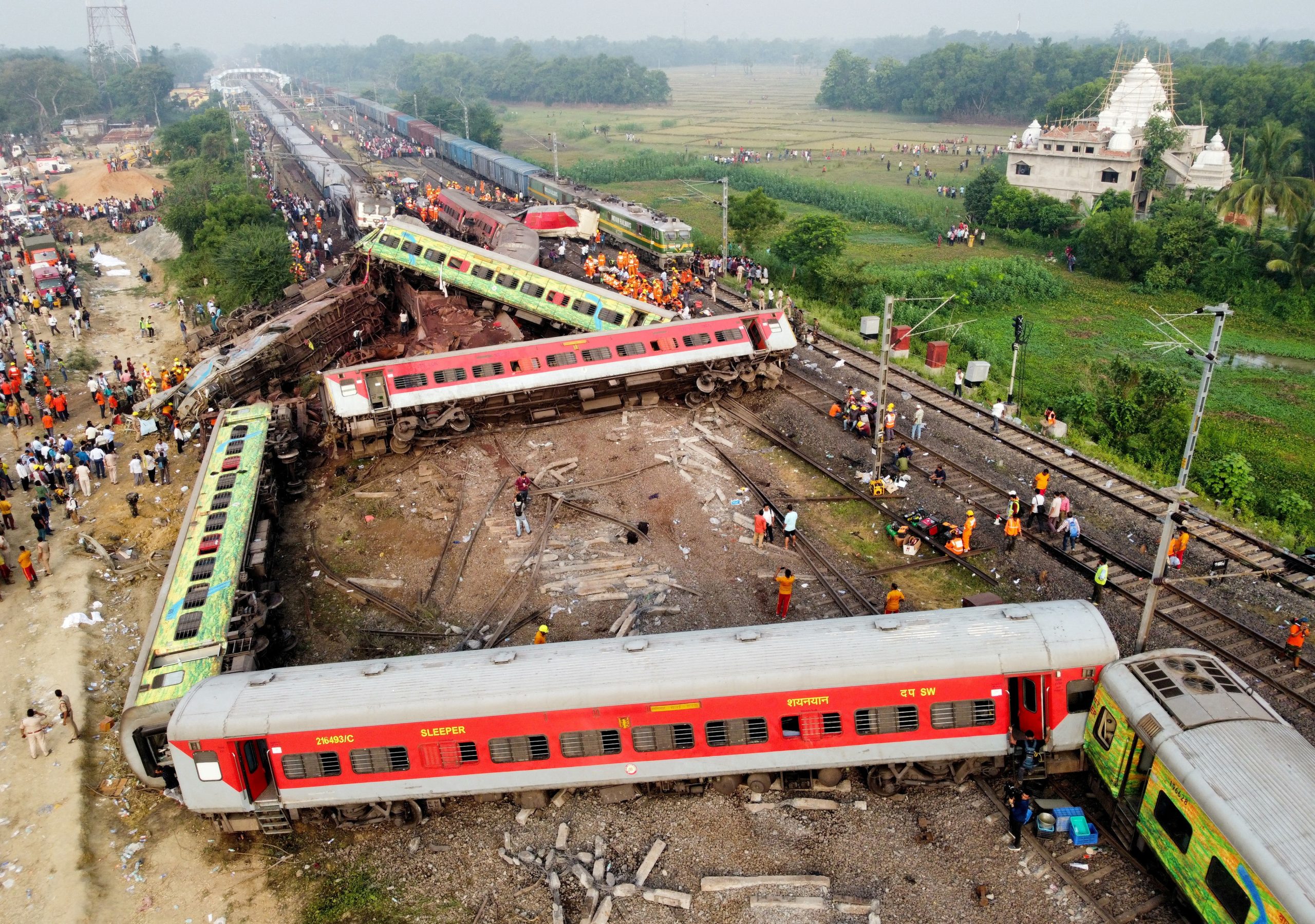Accidents
Safety Measures When Train Accidents Occur

Train accidents, though not as frequent as other vehicular accidents, can have catastrophic outcomes, especially if hazardous materials are involved. For those living in close proximity to railways, it’s crucial to be aware of the safety measures to adopt should a train accident occur nearby. This article aims to shed light on the best practices and recommended safety equipment to have on hand in such an eventuality.
Early Warning Systems
Most urban areas with railway tracks have early warning systems. These include sirens, emergency alerts on mobile devices, and announcements on local television and radio stations. Ensure that you’re registered for any local emergency alert systems and always pay attention to these warnings.
Evacuation and Safe Distance
In the event of a train accident:
- Do not approach the accident site. Even if it seems harmless, there could be hidden dangers like fires, chemical spills, or risk of further derailment.
- Evacuate immediately. If you are within a few hundred meters of the accident. Seek higher ground if possible. If an evacuation order is issued, follow the recommended routes to avoid getting trapped.
- Stay away from water sources near the accident site, as chemicals might seep into waterways.
- Tune into local news for updates and instructions.
Safety Equipment to Have on Hand
Having the right safety equipment nearby can make a world of difference during emergencies. Here are some essentials:
First Aid Kit
A basic kit should include bandages, antiseptics, painkillers, scissors, and tweezers. It’s always good to have a manual on first aid procedures as well.
Water and Non-perishable Food
In extreme cases, you might be stuck in a safe place for a while. Having at least a 3-day supply for each family member is recommended.
Flashlight and Batteries
Power outages can occur, and having a reliable source of light can be invaluable.
Portable Radio: This will allow you to stay updated with local news in case of power or cell service interruptions.
Gas Masks
One of the most significant risks associated with train accidents is the potential spillage of hazardous chemicals. Breathing in these toxic substances can be lethal or cause long-term health issues.
Gas Masks: A Closer Look
Given the potential dangers of chemical spills, it’s worth delving deeper into the importance of gas masks. This equipment can be a lifesaver and is essential for those living near railways. MIRA Safety makes this easy. With a simple NBC-77 filter and a CM-6M gas mask kept safe in a nearby pouch, you’ll be able to rapidly don respiratory protection whilst seeking safer ground, should a train accident cause a chemical spill in your area.
Why are they essential?
Many hazardous materials, when airborne, are invisible and odorless. Without a gas mask, you might unknowingly breathe in these toxins.
How do they work?
Gas masks like the CM-6M have specialized filters like the NBC-77 that are designed to filter out a wide range of chemical, biological, and nuclear (NBC) threats.
Maintenance
Ensure that the mask is in good condition and that the filter is replaced as per the manufacturer’s recommendations. Always check the mask and filter for any signs of damage.
Chemical Spill Awareness: A Personal Guide
Navigating the aftermath of a train accident, especially when chemicals are involved, requires more than just knowledge—it requires a deep sense of awareness. Let’s break it down into steps that are practical, easy to follow, and, most importantly, prioritize your well-being.
Beware of the Unknown
Imagine you’re near the site of the spill. There might be a pool of liquid or a curious-looking powder. Your first instinct might be to check it out, maybe even touch or smell it. Please resist this curiosity. Chemicals can often be deceptive. They might look harmless but can be highly corrosive or toxic. If you ever suspect a chemical spill, it’s of utmost importance to avoid contact with any unfamiliar substances.
Safety Begins at Home
Now, let’s say you’re not directly at the accident site, but it’s in your neighborhood. The air might carry chemical particles, which is why it’s crucial to create a barrier between you and the outside world. Staying indoors might feel a bit confining, but it’s a temporary and necessary measure. Close all windows, doors, and any openings to ensure you’re not inadvertently letting in contaminated air. Wait for the official word from authorities before you step outside.
Shutting Down External Air Sources
We all love our HVAC systems and the comfort they bring. However, during a chemical spill, they could potentially funnel in contaminated air. Make it a point to immediately turn off air conditioners, heaters, and any ventilation systems. By doing so, you’re creating an additional layer of protection against the unknown toxins that might be lurking outside.
Immediate Cleansing
Think about this—you were outside, perhaps walking your dog or picking up the mail when the accident occurred. Even if you rush inside immediately, there’s a chance that some chemical particles clung to your skin or clothes. Don’t panic. Head straight to a sink or shower, and wash any exposed areas thoroughly with plenty of soap and water. It’s better to be overly cautious than to risk potential harm.
Navigating Train Mishaps with Wisdom & Preparedness
While train accidents are relatively rare, the severity of their impact necessitates preparedness, especially for those living near railways. A little preparation and knowledge can go a long way in ensuring your safety and that of your loved ones. Stay informed, invest in essential safety equipment, and always prioritize personal safety over property during such events.

















































